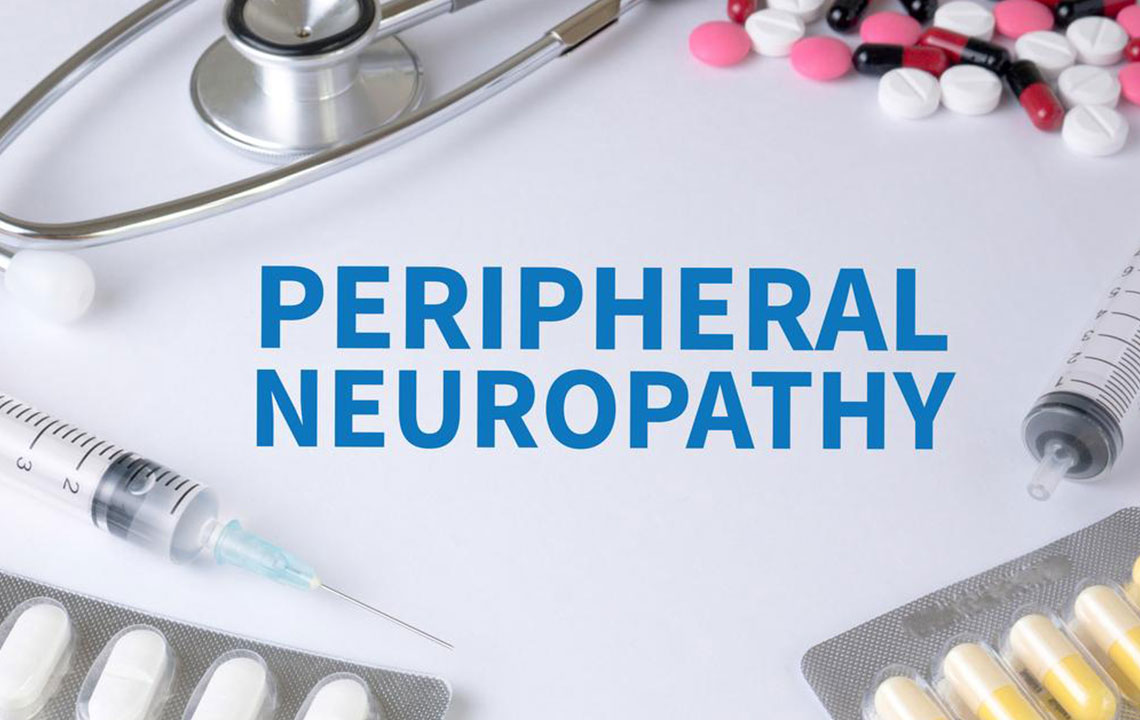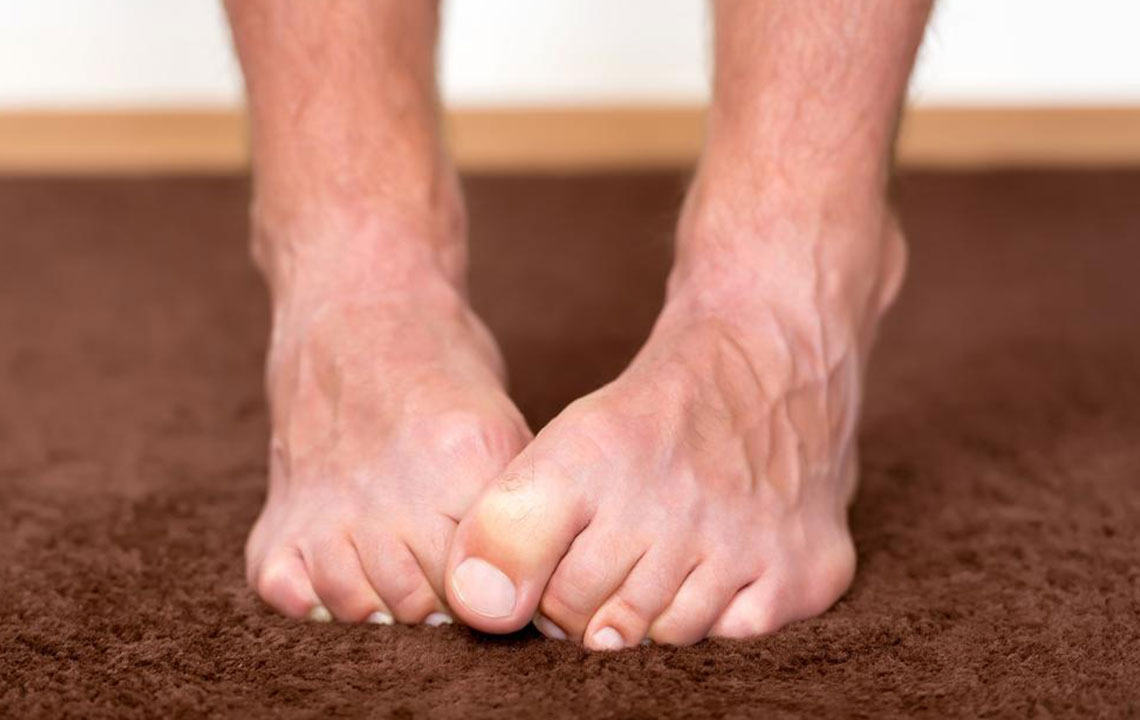Comprehensive Guide to Neuropathy: Causes, Symptoms, and Effective Management Strategies
Neuropathy encompasses nerve damage caused by conditions like diabetes, deficiencies, infections, and toxins. Its symptoms include numbness, pain, and weakness. Accurate diagnosis and targeted treatment focusing on underlying causes are crucial for effective management. Early intervention can prevent progression, improve quality of life, and reduce complications. This comprehensive guide explores causes, symptoms, diagnosis, and treatment options to empower patients and healthcare providers in managing neuropathy effectively.

Comprehensive Guide to Neuropathy: Causes, Symptoms, and Effective Management Strategies
Neuropathy, a condition characterized by nerve damage or dysfunction, is a common health issue that affects millions of people worldwide. It results from various underlying health problems, leading to a range of uncomfortable and sometimes debilitating symptoms. Understanding the complexities of neuropathy, including its causes, symptom presentation, and treatment options, is essential for effective management and improved quality of life.
Neuropathy can affect any of the body's peripheral nerves, which are responsible for transmitting signals between the brain, spinal cord, and the rest of the body. These nerves include sensory nerves (which relay sensations such as pain, temperature, and touch), motor nerves (which control muscle movements), and autonomic nerves (which regulate involuntary functions such as blood pressure, digestion, and temperature regulation). When any of these nerve types are compromised, it can lead to a wide array of symptoms depending on the specific nerves affected.
While some cases of neuropathy are idiopathic, meaning no identifiable cause is found, most are attributed to identifiable health issues. Recognizing these causes is crucial in managing the condition effectively. Let's delve deeper into the primary causes of neuropathy, typical symptoms, diagnostic methods, and the available treatment options that target the root causes of nerve damage.
Primary Causes of Neuropathy
Among the various contributing factors, diabetes mellitus stands out as the leading cause of peripheral neuropathy worldwide. Diabetic neuropathy occurs when prolonged high blood sugar levels damage nerves, especially in the extremities such as the feet and hands. This condition can develop gradually, often unnoticed until significant nerve damage has occurred, leading to symptoms like numbness, tingling, burning sensations, or even loss of sensation.
Vitamin deficiencies, particularly deficiencies in vitamin B12, vitamin B1 (thiamine), and vitamin E, also play a significant role in neuropathy development. These vitamins are essential for nerve health; their lack can impair nerve repair and function. For example, B12 deficiency can lead to demyelination (damage to the protective sheath around nerves), causing numbness, weakness, and coordination problems.
Infections are another major cause. Conditions such as shingles, caused by the varicella-zoster virus, HIV, Lyme disease, and syphilis can all harm peripheral nerves either directly or through immune-mediated mechanisms. Toxins, including heavy metals like lead or mercury, and chronic exposure to certain chemicals, can also induce nerve damage.
Trauma or injury to nerves from accidents, surgical procedures, or repetitive stress can result in localized neuropathy. Moreover, autoimmune diseases such as rheumatoid arthritis, lupus, and Guillain-Barré syndrome attack the nervous system, leading to inflammation and nerve damage.
Certain medications, especially chemotherapy drugs used in cancer treatment, are known to induce neuropathy as a side effect. These drug-induced neuropathies often manifest gradually and can be challenging to manage.
Symptoms of Neuropathy
The presentation of neuropathy symptoms depends heavily on the specific nerves affected. Common signs include sensory disturbances such as numbness, tingling, burning sensations, and hypersensitivity to touch or temperature. Patients might describe feeling as if their limbs are ‘electric shocks’ or experience a persistent pins-and-needles sensation.
Motor nerve involvement can lead to muscle weakness, difficulty coordinating movements, and in severe cases, muscle atrophy. This can significantly impair balance and mobility, increasing the risk of falls and injuries.
Autonomic nerve damage can result in a wide variety of symptoms, such as abnormal blood pressure fluctuations, dizziness, digestive issues (like nausea, bloating, or constipation), abnormal sweating, urinary problems, or abnormal heart rate. These symptoms often complicate the diagnosis and management of neuropathy, as they may be attributed to other health conditions initially.
Early detection of symptoms is vital to prevent further nerve deterioration and to initiate appropriate treatment. For many patients, the initial signs are subtle and may be mistaken for general fatigue or aging, which underscores the importance of regular health check-ups, especially for individuals at higher risk.
Diagnosis of Neuropathy
Diagnosing neuropathy involves a detailed clinical history and a series of tests aimed at identifying the underlying cause. Physicians often start with a physical examination to assess sensations, reflexes, and muscle strength.
Electrodiagnostic tests such as nerve conduction studies and electromyography (EMG) are critical tools to evaluate nerve and muscle function. These tests help determine the type and extent of nerve damage and whether motor, sensory, or autonomic nerves are affected.
Blood tests are essential to identify underlying conditions like diabetes, nutritional deficiencies, infections, or autoimmune markers. Sometimes, a skin biopsy or nerve biopsy may be necessary for a definitive diagnosis, especially in atypical cases.
In addition, imaging techniques such as MRI or ultrasound can visualize nerve structures and identify compressions or structural abnormalities contributing to neuropathy. Proper diagnosis is fundamental to tailoring effective management strategies.
Management and Treatment of Neuropathy
The treatment approach for neuropathy primarily focuses on addressing the root cause. Managing underlying conditions, such as controlling blood sugar levels in diabetics or correcting nutritional deficiencies, can halt or slow disease progression.
Medications prescribed for neuropathy include pain relievers, antidepressants (such as amitriptyline or duloxetine), anticonvulsants like gabapentin and pregabalin, and topical agents such as capsaicin patches or lidocaine. These can help manage nerve pain effectively.
Additionally, physical therapy can improve muscle strength and coordination, reduce discomfort, and prevent joint deformities. Lifestyle modifications like adopting a balanced diet, quitting smoking, reducing alcohol intake, and maintaining proper foot care are also crucial.
For cases caused by autoimmune diseases or toxins, immunosuppressive therapy or removing exposure to damaging substances can be beneficial. In some instances, nerve regeneration procedures or surgeries might be necessary in cases of nerve compression or severe nerve injury.
Emerging treatments, including nerve growth factors and stem cell therapy, are being explored to promote nerve repair and regeneration, offering hope for future management of neuropathy.
Preventive Measures and Living with Neuropathy
Prevention strategies are pivotal, especially for individuals at higher risk. Maintaining optimal blood sugar levels, proper nutrition, avoiding toxins, and regular medical screenings can significantly reduce the risk of developing neuropathy.
Patients should prioritize foot care, including wearing comfortable footwear, daily inspection for injuries or ulcers, and prompt treatment of any skin breakages. Managing other health conditions like hypertension and autoimmune diseases also plays a key role in prevention.
Living with neuropathy can be challenging, but with proper management and lifestyle adjustments, many patients lead active, fulfilling lives. Support groups, educational resources, and consultations with neurologists or pain specialists can provide valuable assistance in coping with the condition.
In conclusion, neuropathy is a complex disorder that can significantly impact an individual's quality of life. Recognizing its causes, symptoms, and available treatment options is essential for early intervention and effective management. If you suspect you may have neuropathy, seek medical advice for proper diagnosis and personalized care strategies to protect your nerve health and overall well-being.





